What Happens If You Use the Same Washcloth Every Day, According to Doctors
It may not be getting you as clean as you think it is.
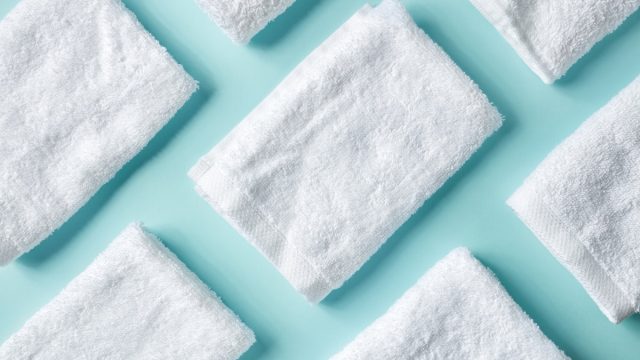
However you prefer to get clean—with a shower or bath, in the morning or the evening—using a washcloth is a gentle way to cleanse and exfoliate your skin. But if you keep a washcloth in the shower and don't launder it between uses, it might not be getting you as clean as you think it is.
Experts say that using the same washcloth every day without washing it can lead to unhygienic conditions that could seriously undermine your hygiene routine. Read on to learn why doctors say you need to regularly toss your washcloth in the laundry—and to find out what happens if you don't.
READ THIS NEXT: Half of Single Men Only Wash This Every 4 Months, New Research Finds.
Bacteria will quickly multiply.
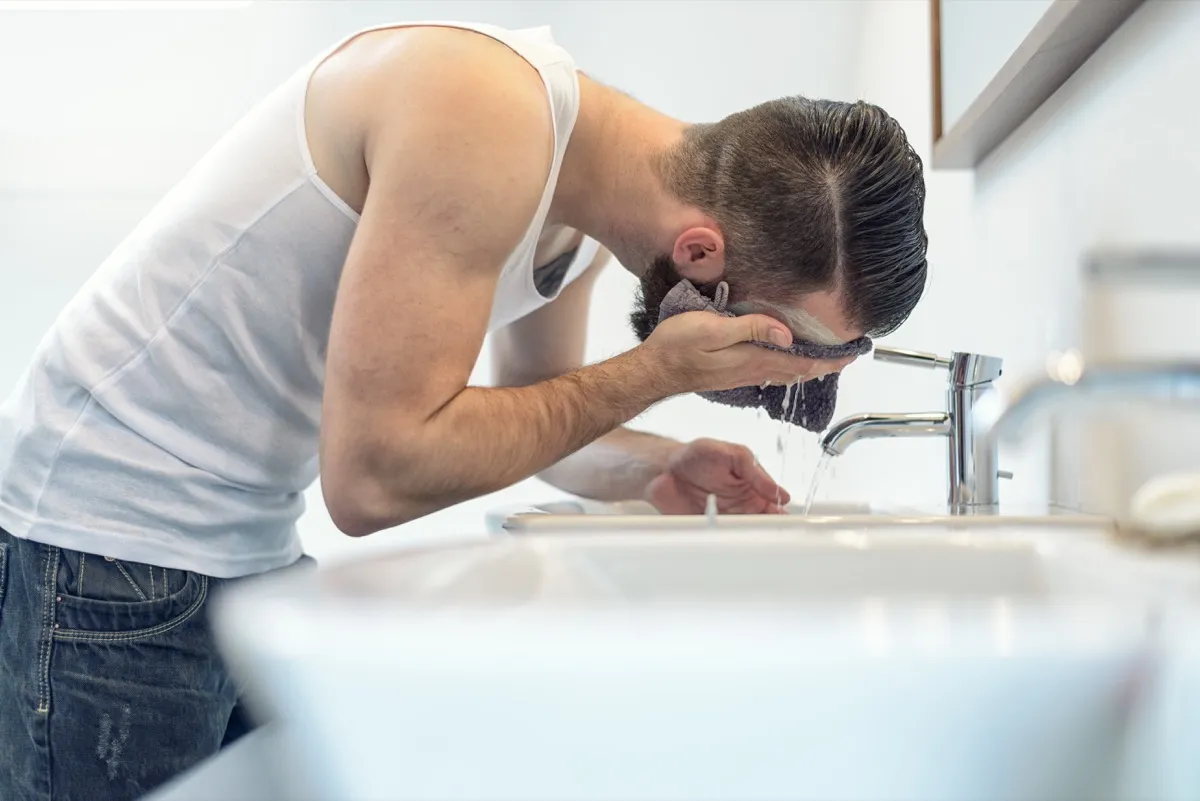
Towels and washcloths are notorious for aiding and abetting the spread of bacteria. In fact, one study conducted by researchers at the University of Arizona found that nearly 90 percent of bathroom towels were contaminated with coliform bacteria and about 14 percent carried E. coli, Time reported in 2017.
"Over time, bacteria can accumulate on a washcloth, which can cause skin infections and irritations," says Zeeshan Afzal, MD, a Texas-based dermatologist and Welzo medical officer. "Using the same washcloth repeatedly without washing it can contribute to poor hygiene and potentially spread bacteria or other pathogens to other parts of the body." Ultimately, this can lead to infection, irritation, and certain skin conditions such as eczema.
READ THIS NEXT: What Happens If You Don't Wash Your Hair for a Week, According to Doctors.
Your washcloth will begin to grow mold.
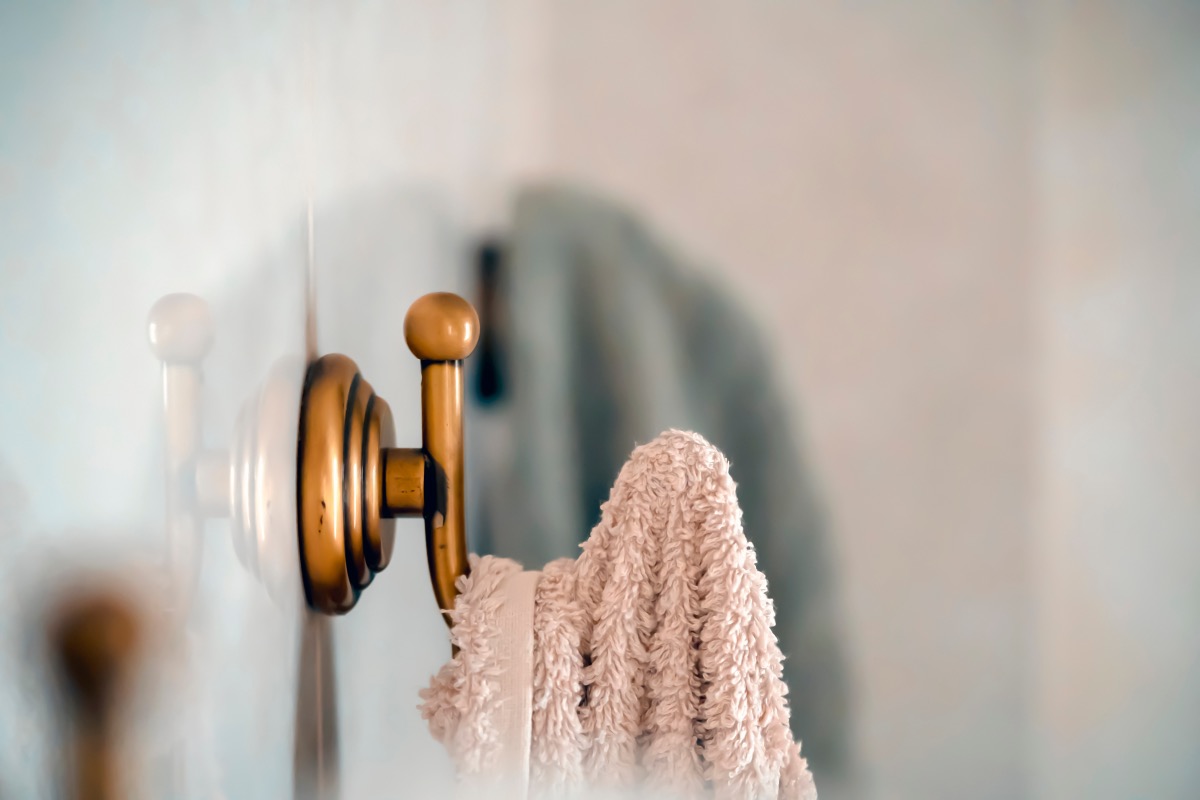
Washcloths take a long time to dry, since they're fully submerged in water with each use. That's why, if used repeatedly and left unwashed, your washcloth could also become a breeding ground for mold and fungal growth. As Afzal points out, this is especially likely in dark, humid environments like the bathroom.
According to Healthline, a moldy washcloth can cause a range of symptoms, including a skin rash. "It's unlikely that you or a doctor will be able to diagnose a mold rash just by looking at it," their experts note. Common symptoms of mold-related rashes include itchiness, sensitive skin, dry or scaly skin, discolored skin, and "small raised bumps that may leak fluid."
It will accumulate dead skin cells.
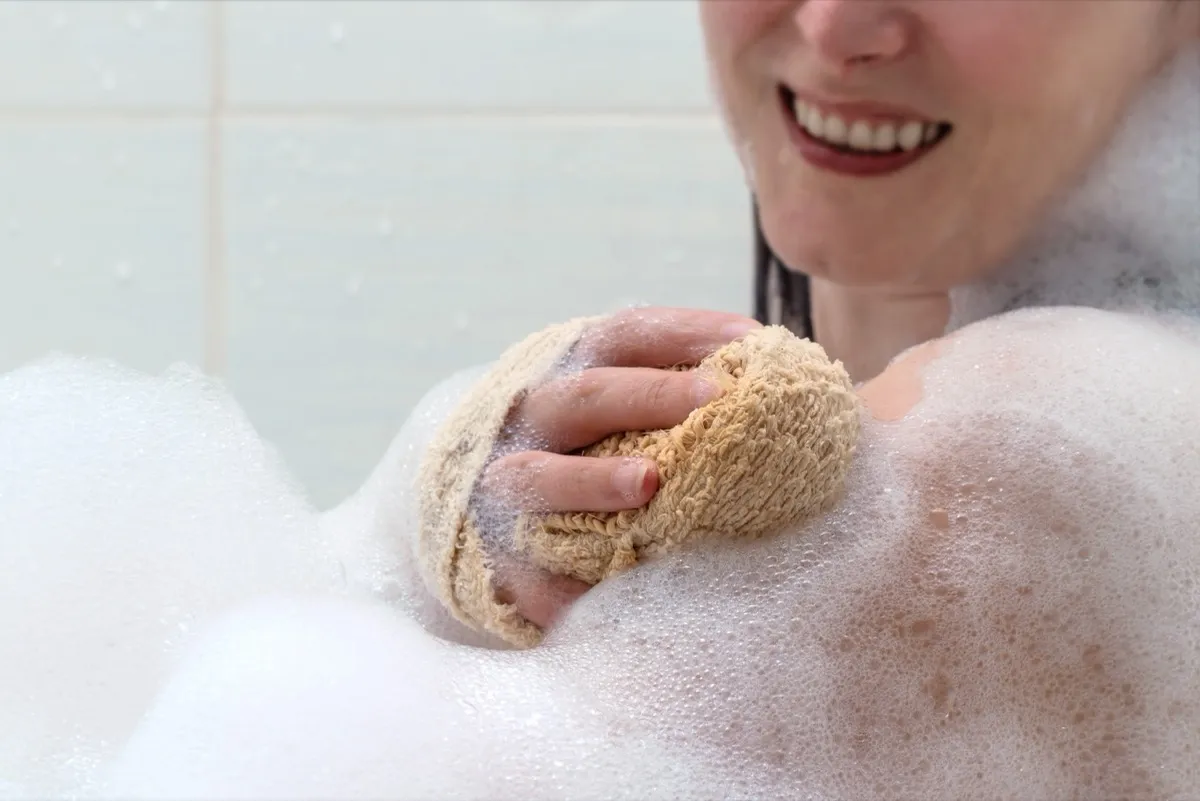
If your primary aim in using a washcloth is exfoliation, you want dead skin cells to slough off as you wash. Yet experts say that when these cells begin to build up, it can lead to other skin problems.
"Over time, dead skin cells can accumulate on a washcloth, which can clog pores and lead to acne breakouts," says Afzal. Though how often you exfoliate may come down to your skin type, many experts recommend limiting the practice to two to three times per week, at the most.
For more health news sent directly to your inbox, sign up for our daily newsletter.
You could have an allergic reaction.
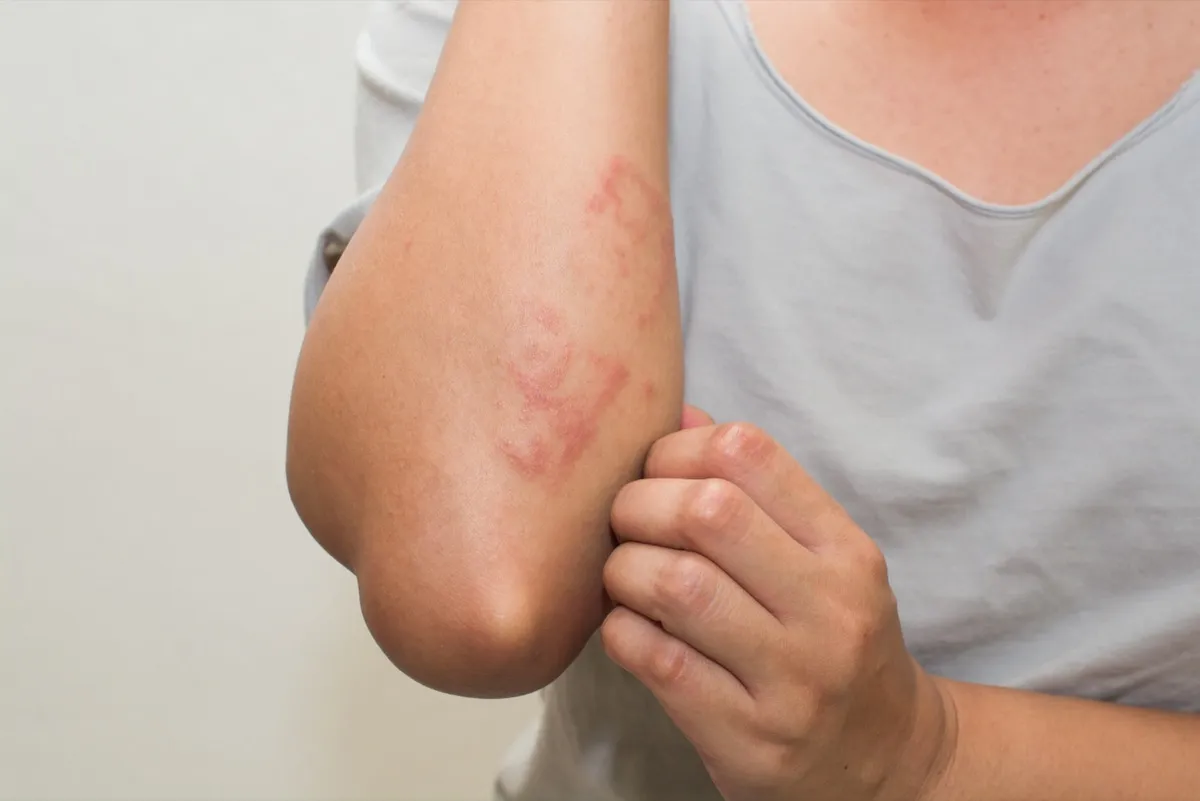
If you reuse a washcloth without laundering it between uses, you may also be more likely to develop an allergic reaction, Afzal says. However, it's worth noting that some individuals may be sensitive to the washing process itself. "Some people may develop allergic reactions to certain detergents or fabric softeners used to wash the washcloth, leading to skin irritation," he tells Best Life.
To prevent a reaction, he recommends washing your washcloths after each use or at least every few days, using a mild detergent. "This can help to reduce the buildup of bacteria, fungi, dead skin cells, and other potential irritants. Additionally, using a fresh washcloth each time can help to promote good hygiene and prevent the spread of bacteria or other pathogens," he says.





















